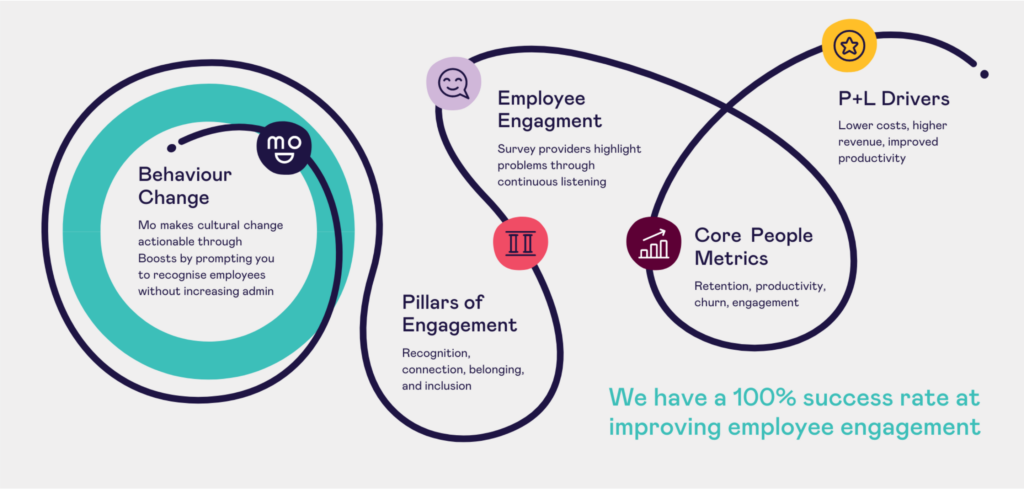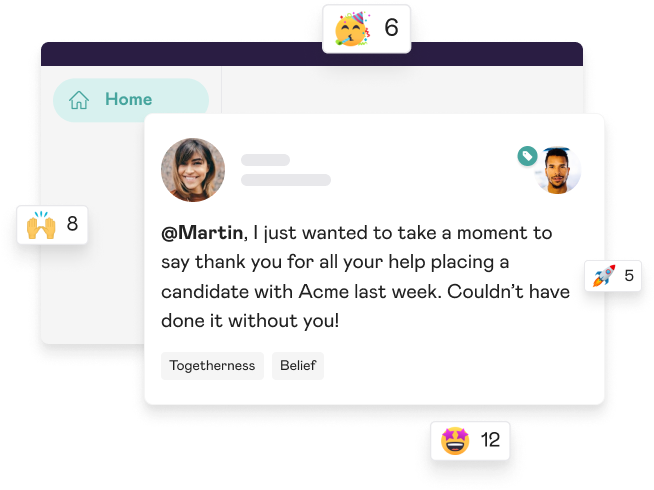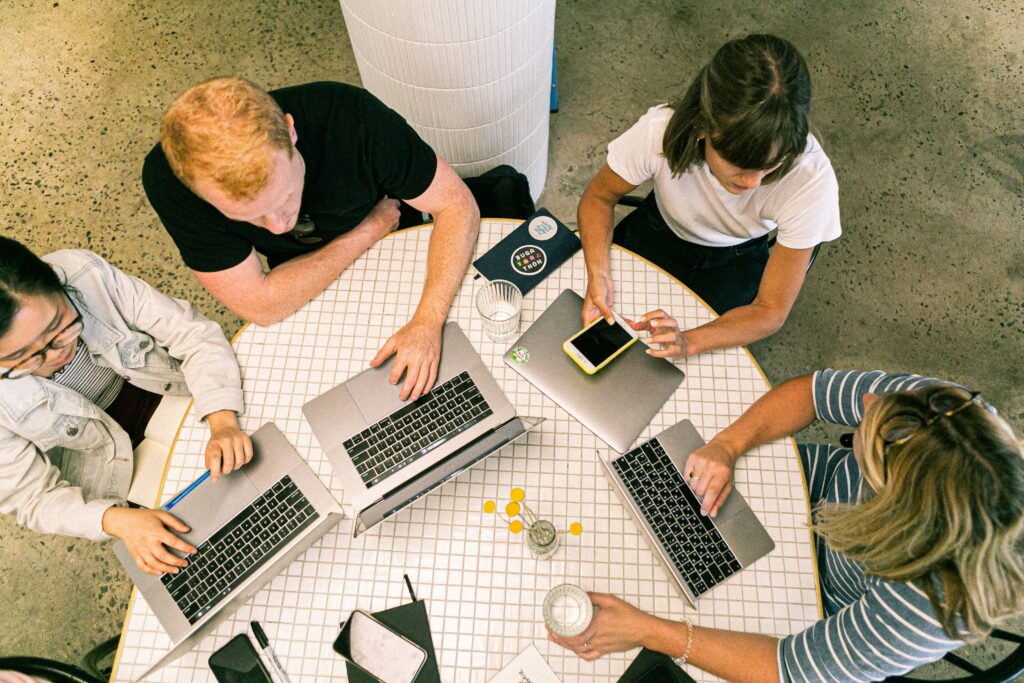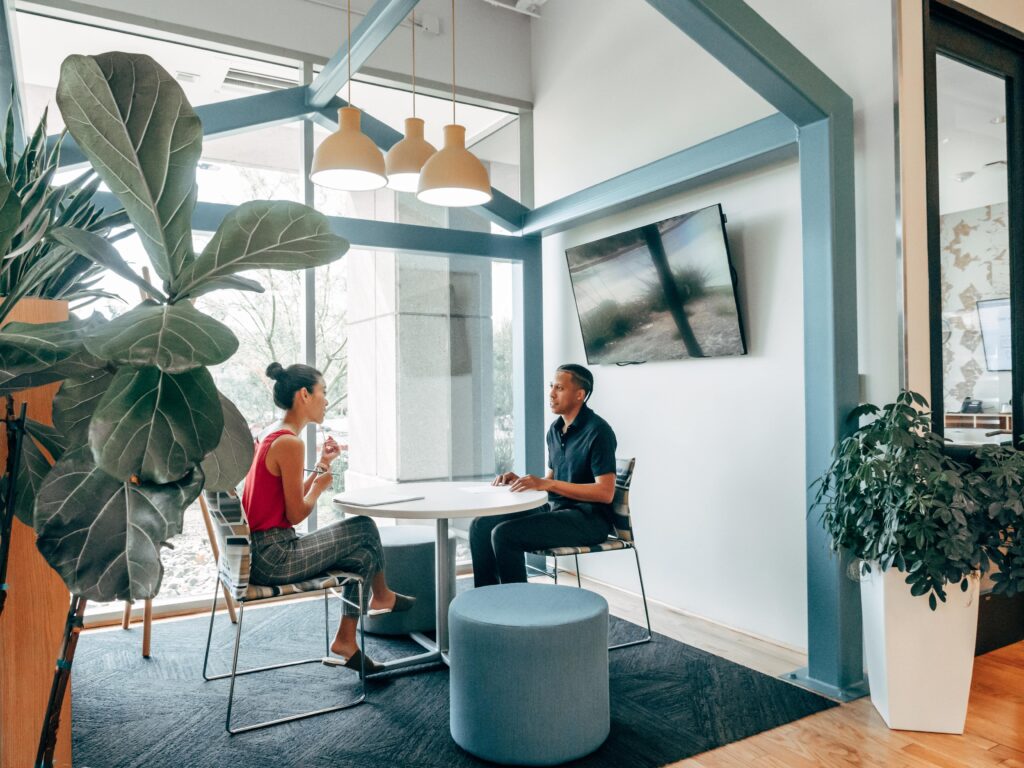In my time as the founder of a leading employee recognition platform, I’ve noticed a significant shift in the world of work. I have seen it in the labour market, our working patterns, changes in technology, and the rise of remote working. All of these factors have fundamentally changed employee behaviours – and means that employee engagement matters more than ever.
The impact? Employee attitudes to work are different. The “how, when and where” of working will never be the same. It’s time for employers to wake up to the shift – before they lose their best people.
The Power Shift
In the last decade, the power balance has been shifting in favour of the employee. Employees care about their work situation in ways never before seen. Identity plays a huge factor – as does flexibility. Today’s highly skilled workers want their jobs to work for them. And they’re willing to shop around until they find a company that accommodates their desires.
The result is a workforce willing to job-hop. Security, despite the cost of living, is often secondary to fulfilment. Employees want to feel valued. And at the same time, they want to be part of a work culture that aligns with their values. The employee/employer relationship is shifting towards something more reciprocal – moving beyond an exchange of compensation for labour.
Change Has Been Rapid
The pace of the change has been fast-tracked because of the impact of the pandemic. We saw this in the rise of phenomena like “The Great Resignation”. But even as these extremes settle down, the imprint remains: employees want more.
As employees hold more power, we can see the impact across recruitment, engagement, retention and productivity. McKinsey summed up the choice employers face as “Great Attrition or Great Attraction“. Put simply, companies must appease their workers or they will face challenges.
But Change Can Be Positive
I don’t see this shift as detrimental. There is a lot of research that suggests a positive company culture based on values of recognition, connection and belonging is more effective at improving engagement. If businesses want to shift the needle, especially amongst Gen Z workers, they should implement people-centric policies.
If top talent is willing to shop around for the best company culture, a big salary is no longer enough to ensure skill and productivity. That’s why recognition and engagement should be receiving maximum investment. The future of work is built around people first.
Engagement is Bottom-up, Not Top-down
For my company Mo, the solution has always been obvious: to help teams and businesses thrive, we must start with the employee.
The solution to low employee engagement starts with understanding employee desires. I have learned that the best solution is employee-centred; not top-down but bottom-up. Only by understanding the motivations and behaviours of people at work can we create the best possible experience that enables and inspires everyone to achieve excellence.

Great Work Relies on Teamwork
Collaboration is a fundamental part of work today. Most of the workforce operates in teams that are fluid and often subject to sudden changes. Our productivity is largely hinged on those collaborations. Modern businesses understand that high performance is dependent on the effectiveness of teamwork.
Collaboration tools have seen enormous investment. Transformation projects and the popularisation of agile working practices have sparked an explosion of tools and technologies like Zoom, Slack and Teams to improve productivity. But these functional improvements forget one thing: human beings have feelings.
When structures are in flux – such as in a start-up or across a global organisation – these “communication” technologies serve little function to alleviate alienation, invisible work and a lack of team cohesion. For businesses to win, their teams be empowered to thrive in all circumstances. That’s where employee engagement software makes a real difference.
Managers Must Take Employee Connection Seriously
As I mentioned in the introduction, our need to feel part of something bigger is more important than ever. Employees want to feel connected to their colleagues. With the rise of remote work, this is now a significant challenge for HR and People teams.
Changing work structures means that face-to-face interactions are becoming fewer – and employees are getting less feedback as a result. It’s hard to foster relationships across distance unless your company culture is designed to facilitate them.
Social connection is extremely powerful. I have seen our customers prove that people are far more likely to achieve great things when they work well together. Connection creates opportunities for teams to thrive. Here are three examples:
- Connection creates faster feedback loops
- It fosters a culture of accountability
- Employees feel more loyal to their colleagues
As you can see, connection fosters a work environment that prioritises productivity and reduces employee turnover. That’s why employee engagement matters.

It’s Time For Leaders to Step Up
The pandemic was a major test for leaders. For me, one of the key challenges was visibility. With more people working from home, being able to see everyone’s contribution to the team became much harder.
Not only do employees struggle with feeling like their work is invisible, managers find it nearly impossible to see who is having a hard time. I see the same problem with detecting who is going the extra mile. Recognition and feedback are falling by the wayside.
This lack of visibility is hurting employee morale. Workers feel isolated and unvalued – and it’s killing motivation. So where do leaders turn? What solutions exist to help them?
My Vision for a Better Future
The average team spends 15,000 hours working together each year. Most of us see more of our colleagues than we do our loved ones. These connections should be meaningful – or what’s the point?
I believe that the future of work should be based on positivity, even if that sounds optimistic. Here is my vision: our connections at work should be meaningful and fulfilling. Employers should value employees for their work and empower them to be their best.
At Mo, we’ve built a platform that helps companies achieve this – and it’s simpler than you might imagine. It utilises asynchronous prompts to keep employees connected while building habits of recognition and engagement in their workflows. It’s easy for busy managers to implement. Best of all, Mo improves engagement scores while keeping every type of team connected.
Transform your culture with Mo

- Improve employee engagement scores
- Reduce employee churn
- Build a collaborative culture
Mo Helps Employees Own Their Work Story
Mo gives everyone a place to build their identity and share what matters to them. Our employee engagement platform is a safe place where people can express themselves and truly belong by capturing their achievements and celebrating all the moments in their work journey.
- Employees get to know what’s important to their colleagues
- Teams learn how to collaborate better
- Departments feel better connected
- Celebrating success becomes a habit
By giving leaders better insight into their people, Mo helps them to nurture, influence, unite and strengthen teams. All of our research shows that better visibility allows leaders to empower their employees to succeed. The future of work shouldn’t be scary. Change is possible – and your company culture deserves the investment.
If you’d like to have a conversation about helping your team thrive with our employee engagement software, let’s connect. Book a demo or reach out to me directly.
Employee Engagement Matters: Key Takeaways
- The dynamics of the workplace have changed significantly, with employees seeking fulfilment and alignment of values.
- The shift towards a more reciprocal relationship between employers and employees emphasises the importance of company culture and recognition.
- The pace of change in the workplace has been accelerated, particularly by the pandemic. Employees now have more power, impacting recruitment, engagement, retention, and productivity. Companies must adapt to this shift or face significant challenges.
- Effective change in improving employee engagement starts with understanding employee desires and motivations.
- Emphasising the importance of connection and meaningful relationships in the workplace, along with empowering teams, is crucial for success.



